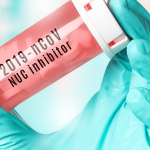Congress Recognizes Ambulance Services as Health Care Services in “The American Rescue Plan Act of 2021”
Also Adds Dollars to the Provider Relief Fund to Support Rural Providers and Suppliers
March 10, 2021
Moments ago, the House of Representatives joined the Senate in passing “The American Rescue Plan.” Among the many provisions, this legislation includes waiver authority to allow the Medicare program to reimburse for ground ambulance services provided during the COVID-19 public health emergency when the beneficiary has not been transported under certain circumstances. It also increases the Provider Relief Fund by $8.5 billion, targeting the money to rural providers and suppliers, including ground ambulance services.
The American Ambulance Association (AAA) worked diligently with Centers for Medicare & Medicaid Services (CMS) and the Department of Health and Human Services (HHS) to reimburse ground ambulance services when they provide health care services to a beneficiary, but because of the pandemic the beneficiary was not transported. CMS concluded and communicated in a Frequently Asked Question (FAQ) that the Social Security Act requires the beneficiary to be transported in order for Medicare to reimburse the ground ambulance provider or supplier for the care provided.
To address this problem during the pandemic, Sens. Catherine Cortez Masto (D-NV) and Bill Cassidy (R-LA) introduced S. 149 that would allow CMS to waive the statutory provision creating the barrier to reimbursement during the pandemic. More specifically, it would allow CMS to reimburse ground ambulance services responding to a 9-1-1 or equivalent emergency call even when the beneficiary is not transported when a community-wide EMS protocol prohibiting the transport is in place. Reps. Cindy Axne (D-IA), John Larson (D-CT), and Bruce Westerman (R-AR) introduced the companion bill, H.R. 1609, in the House.
The Senate included S. 149 in “The American Rescue Plan Act of 2021,” which passed the Senate 50-49 on March 6. This amended version passed the House along party lines earlier today and the President is expected to sign the bill into law before March 14.
CMS must exercise its authority under the waiver for the provision to be implemented. The AAA has already begun working with CMS to urge it to act as quickly as possible and we are coordinating this effort with the International Association of Fire Chiefs, International Association of Fire Fighters, National Association of EMTs, National Volunteer Fire Council and the Congressional Fire Services Institute.
In addition to the waiver allowing for reimbursement for treatment in place, the final bill includes $8.5 billion additional dollars for the Provider Relief Fund directed to rural health care providers and suppliers. The funds can be used for health care related expenses and lost revenues that are attributable to COVID–19. To be eligible for a payment, an eligible rural health care provider or supplier must be enrolled Medicare or Medicaid and submit to the Secretary an application that includes a justification statement, documentation of the expenses or losses, the tax identification number, assurance required by the Secretary, and any other information the Secretary requires. The expenses and losses cannot have been reimbursed from another source or another source cannot already be obligated to reimburse.
“The American Rescue Act” marks an important step forward for ground ambulance organizations who have been on the front line of the pandemic and offers important relief recognizing the unique and essential role these organizations play in community response to the pandemic.
For more information on the provisions of the bill that impact ground ambulance services, please sign up for the webinar on “The American Rescue Plan and EMS” scheduled for this Friday, March 12, at 2:00 pm (eastern).














